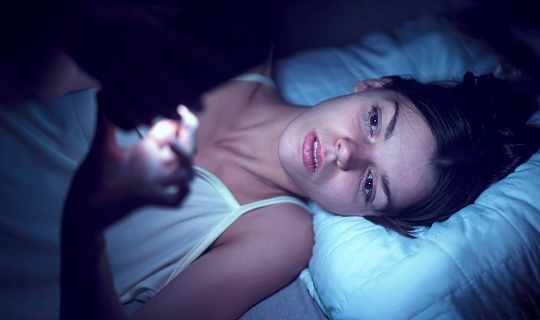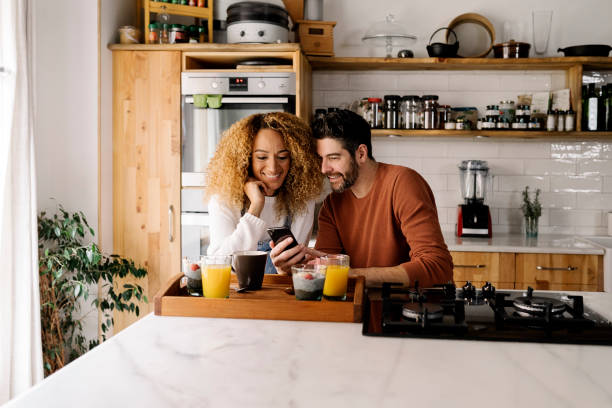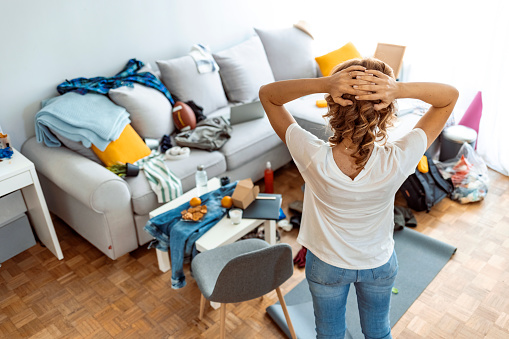
Life with ADHD can often feel chaotic and disorganized. You may find yourself in situations where your mind is busy with tons of information while at the same time feeling foggy that you don’t know how to get out of the maze. The dis-regulation of your attention can have you jumping from topic to topic or hyper-fixated on one thing. This is where social media can become the perfect storm for anyone who has ADHD. You are hyper-fixated on scrolling through post after post; you get your fix of new stimuli while also being able to completely tune out the world around you.
There is no escaping social media. With all the different platforms we have today, it is inevitable that you will spend at least an hour per day on your phone. Sometimes, the use of these social media accounts is reinforced by our work responsibilities. More and more, there are various apps utilized by businesses for communication and networking, so you’re often beholden to some sort of social media account for work, whether you connect through LinkedIn or not. Outside of work, we may feel like the only way we can stay connected with our friends and family is through Instagram stories or Facebook posts (especially because multiple generations are now on Facebook).
People with ADHD can compulsively check their social media accounts whenever they cannot focus or feel bored with a task. Not everyone with ADHD is addicted to social
media, and not everyone who uses social media in an addictive manner has ADHD. But people with ADHD, who are more likely to engage in addictive behaviors and are more likely to be distracted, should be aware of their social media usage.
If you have ADHD and find that you get lost in your social media accounts or begin to feel stress and anxiety if you cannot check them, you may want to consider that your use has become problematic. This means that not only does your ADHD impact the way you interact with the world, but vice versa. The way social media is structured feeds into the biggest challenges of ADHD and exacerbates symptoms.
How to Have Better Social Media Use When You Have ADHD
1) Step back and evaluate your social media use:
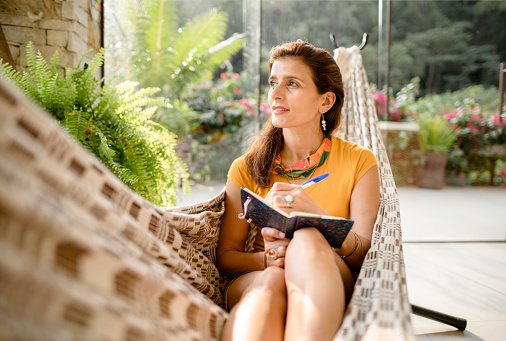
Before you can make any kind of change, it is important to assess how social media is exacerbating your already-existing ADHD symptoms, such as inattentiveness and difficulty with concentrating. What starts as an innocent check-in with friends on Instagram during your lunch break may exacerbate the time freeze often associated with ADHD, where you don’t realize that you have been on your phone way past your lunch break. (One of the possible reasons why some people with ADHD spend time more often on social media sites is their lack of time awareness.) Do you often find that you scrolled on social media past when you were meant to be doing something else, like finishing up a break or leaving for an appointment? Do you make a mental note not to get caught up in the app, only to find yourself scrambling to make up lost time after you inevitably lose track of the clock?
When we say to evaluate where things are, we mean a couple of things. Examine the time of the day, the social media platforms, and the purpose of the engagement to better understand your particular use. Try to collect this information as neutrally as you can. If you are investigating yourself from a place of judgment or frustration, you are less likely to be completely honest with yourself. You are also less likely to be able to accept the issues as they are; change can only happen with acceptance. It’s also just plain unpleasant to beat yourself up about things. You deserve to treat yourself with care and compassion.
Become aware of your triggers for social media use. Yes, it’s good to know how long you’ve been using various apps for and which apps tend to be the hardest to resist. But another key factor of social media use is your ‘why.’ Are you bored? Stressed? Avoiding something else? Lonely? Are you checking up on other people, comparing yourself to them? Are you scrolling before bed because you feel unsatisfied with your day?
As you evaluate your social media use, be curious about yourself. Ask yourself the questions you would ask a friend or loved one: how does this social media use make you feel? Can you think of other ways you would rather spend your time? What do you fear about closing your social media apps; will you feel left out or out of the loop? Do you value the time you spend on social media? If you could use it for its ideal purpose, how would that look for you?
2) Create a plan:
When living with ADHD, one of the key coping mechanisms is identifying your strengths and working with them. The goal is not never to use social media (I mean, you could make this a goal, but that’s not the only option). The goal is to use social media in a way that can complement your ADHD, not worsen it. There are benefits to social media, like feeling understood and creating a community, that can definitely benefit you if you have ADHD. Especially if you come to your diagnosis later in life, you might still be learning about how it impacts you. Online forums and educational pages can be immensely beneficial for you to have access to.
Create your plan to optimize your usage. Have specific times you will be on social media; try to align them with your schedule. You may want to aim for the middle of the day
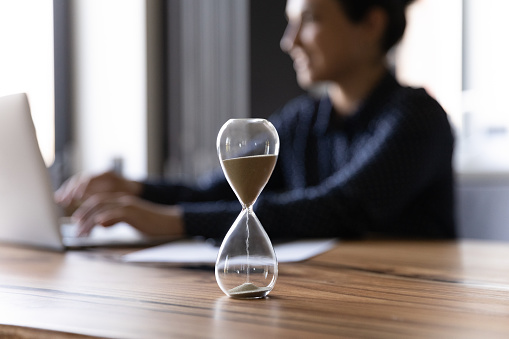
somewhere instead of the start and/or finish of your day. Remove certain apps if you find that they are too monopolizing or are the focus of too much of your time. Getting rid of some of them may feel unthinkable, but it doesn’t have to be a permanent change. As our lives go on, our schedules change, our habits change, and our self-awareness changes. You may reach a point where you find a routine that allows you to access that app again, or you may not. Focus on what is best for you right now in the life you are living. Be intentional about what you will use social media for, and set a timer to remind you to shut down whatever you’re using. Make space in your plan for mindfulness and adjust if you recognize that something isn’t working for you.
It has been recommended that people who have ADHD should avoid technology for half an hour after waking up and focus on achieving a small task instead. For example, quickly doing the dishes or putting last night’s dishes away after leaving them out to dry. Going for a walk, making a satisfying breakfast, whatever it may be. This gives the brain a dopamine reward for accomplishing a task and sets it up to seek that kind of dopamine instead of the doom-scroll dopamine of social media apps. If this sounds like something you want to try, you’ll need to plan for it. You might use your phone as your alarm; can you place it away from your bed and resolve to turn off your alarm in the morning without unlocking and going through your phone? Can you plan to leave dishes drying overnight? Can you decide what you want to make for breakfast and make sure to have all the ingredients?
When you were evaluating your social media use and asking yourself questions about it, did you come up with any answers with clear-cut actions you could take? Start with those. Set reminders, massage your schedule to accommodate what you can where you can, and share with the people around you what your goals are. Recruiting a support team is always a big help when making lifestyle, habit, and behavior changes. The answers that were more vague or convoluted might require more creativity to implement, but hey! ADHD brains are pretty creative! Again, talking to someone else may help you brainstorm ideas – embrace your friends and family as helpers.
3) Find replacement behaviors:

The best way to change the way you occupy your time is to pick a new way to do so. It’s one thing to tell yourself that you’re going to put down your phone. It is another to decide that you’re going to read a book, go for a walk, go see a movie, or do something else instead. Making a plan for yourself gives you a road map to success. What unmet need are you trying to fill with social media; can you adopt a behavior to address that underlying issue?
Do you usually scroll social media on your break at work? What else can you do with that time? Can you bring a book to work? What about a physical puzzle book? Can you adjust your break so that you take it with your work bestie and spend that time together? Are there other ways to use your electronics that aren’t social media, like learning a language? We will always have times of day where we are idle and need something to occupy our brains. If we can channel that time and our technology into something we feel we benefit from, then it’s a win all around.
If you get lost scrolling before bed, you’re probably aware that electronics use isn’t recommended before you try to sleep. Can you read a book (one with actual paper pages) instead? Listen to an audiobook? (Technically, this is technology use, but it’s technology use you can close your eyes and relax to.) Do some meditation or stretching to decompress? If you are using social media for dopamine, what else can you do to get that same charge? Is there a change you can make during the day so that you’re not feeling the urge to boost yourself before you go to sleep?
Many people use social media to feel a sense of connection with the world, and social media can be great for that. Whether you have loved ones who live far away or have opposite schedules, or whether the last few years have been spent in smaller bubbles than before, social media gives you unprecedented access to people. If you are utilizing it as a barricade against loneliness and/or isolation, how can you combat those feelings in a different way? Are there community organizations you can join? Online forums? Clubs? Can you reach out to the people who mean the most to you for more quality time? We often seek to replace quality with quantity when we struggle to get what we need. If you are lonely, have you talked to anyone about it? A friend, a family member, a therapist? We talk a lot about loneliness here at our Woodland Hills therapy practice; if you’re lonely, you are not the only person who feels that way.
If you are feeling the negative side effects of too much social media usage, you are well within your rights to investigate why that is. You might have come to this conclusion on your own, or a partner or
loved one might have expressed concern or frustration at always having to tear you away from your device. Plenty of people get stuck in a loop of continuous scrolling, and it can be a struggle for those who have ADHD and for those who do not. Investigating how you use social media and how it impacts your life isn’t a punishment for having ADHD, and what you discover doesn’t have to lead to permanent change, though it might! What it may do is open up space for dialogue, for assistance, for restructuring, for new ways to approach your day-to-day routine. It may invite people around you to connect with you more deeply, to be there for you. It may make you realize the ways in which you can be there for them, too. Is it time for a detox? Your gut probably has an instinct, but don’t stop there. Anxiety and trauma can feel like knowledge, but sometimes they aren’t. Take the time you need to determine how a life aligned with your values looks to you and if some changes to your social media can help with that. Remember that when we make decisions and set priorities based on our values instead of fear, we not only get to the root of what we truly want and need to do but also feel good doing it.
Embracing You Therapy Can Help You With Your ADHD
In ADHD treatment here at Embracing You Therapy Group, we work with you on addressing the problems you may be experiencing at work or school because of your ADHD. Our treatment approach is here to befriend your ADHD and work with it so you can achieve your goals and feel confident.
Reach out to us to learn more about how ADHD treatment can help you. Contact us today for your complimentary 20-minute phone consultation with our Client Care Coordinator.

